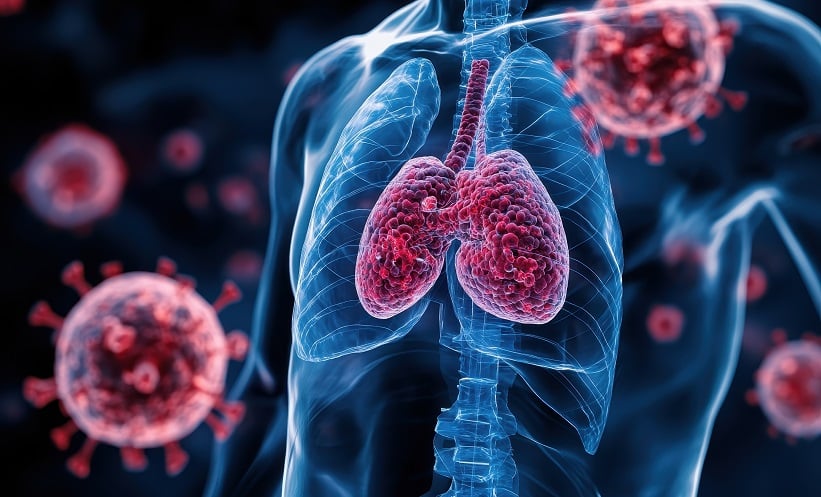A RECENT prospective study has explored the extent of inflammatory cardiopulmonary abnormalities in individuals suffering from long COVID (LC), nearly a year after initial SARS-CoV-2 infection. The study aimed to better understand the persistence and nature of cardiopulmonary symptoms, including shortness of breath, which remains one of the most commonly reported issues. A key finding was that 90% of LC patients displayed lung abnormalities on advanced imaging, suggesting ongoing inflammation long after the acute phase of infection.
The research involved 98 participants with confirmed COVID-19 history and ongoing cardiopulmonary symptoms 9–12 months post-infection. Each underwent 18F-FDG PET/MRI and dual-energy CT (DECT) scans, with a subset also having plasma protein analysis. A small control group of nine individuals, also previously infected but asymptomatic at recruitment, was assessed for comparison. The imaging was designed to identify inflammatory changes in the lungs and heart, while the blood tests aimed to detect biomarker differences that might correlate with imaging findings.
Results showed that 90% of LC patients had abnormalities on DECT scans, with 67% showing pulmonary infiltrates and 59% having abnormal perfusion. PET/MRI findings were abnormal in 57% of the LC group: 24% had signs of myocarditis, 22% showed patterns consistent with pericarditis, 11% had periannular uptake, and 30% demonstrated vascular uptake involving the aorta or pulmonary arteries. Importantly, none of the control participants showed any such abnormalities. Plasma protein analysis revealed significant differences between LC patients and controls, and further variation between LC individuals with normal and abnormal PET/MRI findings.
This study highlights a substantial prevalence of structural and inflammatory changes in the cardiopulmonary systems of long COVID patients, which persist up to a year post-infection. These findings suggest a need for careful clinical follow-up, particularly to monitor for complications such as pulmonary hypertension or valvular heart disease. However, limitations include the small control group and the observational nature of the research, which prevents causal inferences. Clinicians should remain vigilant when managing LC patients with ongoing cardiopulmonary symptoms and consider referral for advanced imaging in selected cases.
Reference
Trivieri MG et al. Prevalence of Persistent Cardiovascular and Pulmonary Abnormalities on PET/MRI and DECT Imaging in Long COVID Patients. J Nucl Med. 2025;DOI: 10.2967/jnumed.124.268980.








